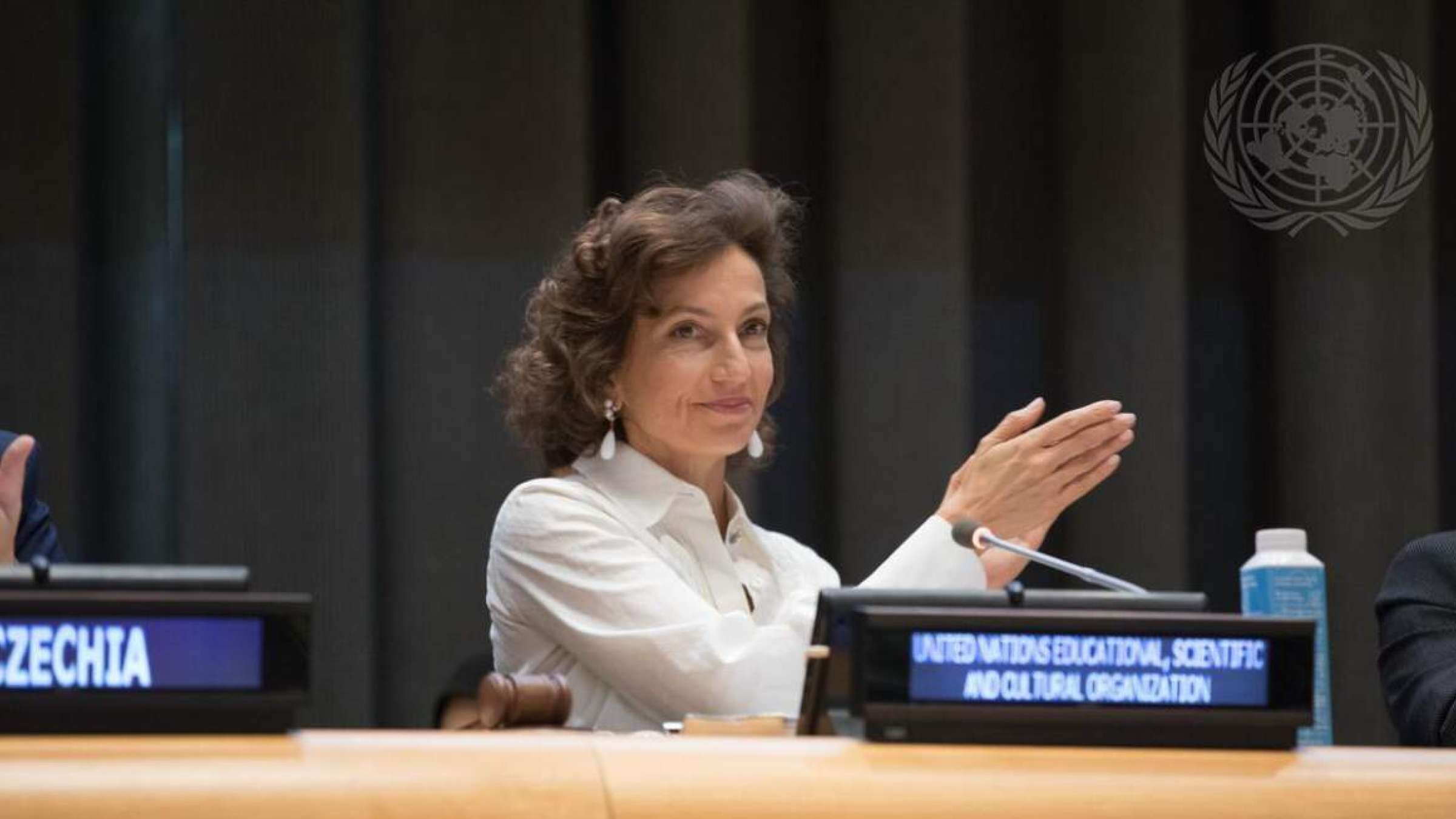Message from Ms Audrey Azoulay, Director-General of UNESCO, on the occasion of World Tsunami Awareness Day

On 5 November, World Tsunami Awareness Day, the international community comes together to remember the lives lost to tsunamis, and to inform and protect over 700 million individuals living in areas vulnerable to ocean hazards around the world.
Indeed, as overpopulation and overuse of coastal areas escalate, tsunamis and other ocean hazards have become an ever growing threat for coastal populations. UNESCO, through its Intergovernmental Oceanographic Commission, has long strived to reduce tsunami risks through prevention, early warning and early action, while raising awareness on a wide scale.
Thanks to these efforts, and the involvement of Member States and partners, we now have early-warning alert systems to reduce tsunami risks in all of the world’s main ocean basins.
Yet as we have seen with recent submarine landslides and tsunamis generated by volcanic explosions – including at Hunga Tonga-Hunga Ha’apai last January – we urgently need to step up our efforts by developing a truly comprehensive global tsunami early warning architecture.
We also know that warning communities is not enough if they do not know how to react. Coastal populations must be prepared to face tsunamis at all levels – so lives can be saved, and futures preserved.
The United Nations Decade of Ocean Science for Sustainable Development (2021-2030), led by UNESCO, is an opportunity in this respect. And in this context, UNESCO has announced that it will extend its Tsunami Ready Recognition Programme to all at-risk communities by 2030, working with governments, schools, community institutions to build resilience to coastal hazard and risks. We invite all Governments to join this initiative, and all at-risk communities to engage in training and capacity development in order to get tsunami ready.
Indeed, only by informing communities and developing deep-rooted reflexes in the face of emergencies can we truly reduce risks. This means everyone has a role to play.
Therefore, on this World Tsunami Awareness Day, UNESCO and the United Nations Office for Disaster Risk Reduction are jointly calling for all individuals, schools and communities to raise awareness of tsunami risk by organizing drills, taking part in simulation exercises or walking tsunami evacuation routes as part of the #GetToHighGround campaign.
For the world needs engaged and informed individuals, who know what must be done when a tsunami strikes. These individuals not only save themselves: they can save –and have saved – entire communities.
Is this page useful?
Yes No Report an issue on this pageThank you. If you have 2 minutes, we would benefit from additional feedback (link opens in a new window).